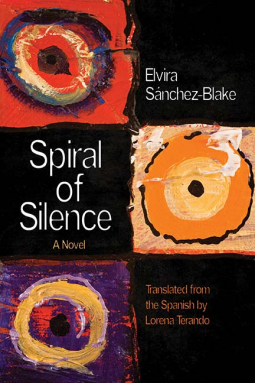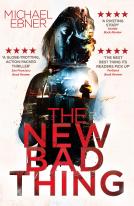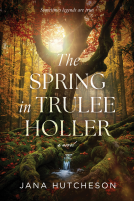
Spiral of Silence
A Novel
by Elvira Sánchez-Blake
This title was previously available on NetGalley and is now archived.
Send NetGalley books directly to your Kindle or Kindle app
1
To read on a Kindle or Kindle app, please add kindle@netgalley.com as an approved email address to receive files in your Amazon account. Click here for step-by-step instructions.
2
Also find your Kindle email address within your Amazon account, and enter it here.
Pub Date 15 Jan 2019 | Archive Date 26 Mar 2019
Northwestern University Press | Curbstone Books 2
Talking about this book? Use #SpiralOfSilence #NetGalley. More hashtag tips!
Description
A multigenerational epic, Spiral of Silence (Espiral de Silencios) opens in the early 1980s, as peace and amnesty agreements spark optimism and hope. We meet Norma, a privileged, upper-class woman who is married to an army general; Maria Teresa (Mariate), a young rebel who loves a guerrilla fighter and navigates commitments to motherhood and revolutionary activism; and Amparo, a woman who comes of age later, and carries the confusion and dislocation of a younger generation. Each contends with the consequences of war and violence on her life; each is empowered through community-building and working for change.
Few authors have considered the role of women in Colombia during this wartime period, and Sánchez-Blake's nuanced exploration of gender and sexism—framed by conflict and social upheaval—distinguishes the novel. Drawing on stories from women who have worked within organizations in Colombia to end state violence, Spiral of Silence celebrates resistance, reinvention, and how women create and protect their families and communities.
Advance Praise
"Sánchez Blake's novel gives both a face and a voice to a segment of the population that has been largely overlooked and undervalued in not only official historical documentation but also . . . literary production . . . [it] represents a noteworthy step forward in the breaking of the silence that has long entrapped half the Colombian population." —Michelle Sharp, editor (with Anja Louis) of Multiple Modernities: Carmen de Burgos, Author and Activist
Available Editions
| EDITION | Other Format |
| ISBN | 9780810139169 |
| PRICE | $18.95 (USD) |
| PAGES | 272 |
Average rating from 7 members
Featured Reviews
The story is set during the Colombia’s Civil War, fought between governments and far-left guerrillas. The author was inspired by a tapestry and other pieces including a banner with the slogan: “No more war! No more hate! No more blood!” while attending the Peace Communities Arts and Crafts. The artists were women, “led by Maria Teresa Giraldo, who created the Eastern Antioquia Peace Community. Its members are mothers, wives, and daughters committed to the cause of ending the war and getting their men back.” They armed themselves with posters, “burst into the middle of the combat zone carrying flags and chanting: “No more war! No more hate! No more blood!”
The story is presented through three women, opening in the early 1980s.
Mariate, 15 year old, gives birth to her baby Miguel Angel in prison. She was arrested for weapon possession, which she wasn’t aware off until the day it was discovered at her house, at the bottom of a trunk hidden by her boyfriend, Julian – a guerrilla fighter. The list of her crimes was long, including conspiracy against the state. A nun at the prison taught her how to knit. So she started creating tiny sweaters, caps, and ponchos for her baby.
Norma, 35 year old, from privileged family, can’t have children. One day, her husband, Colonel Ricardo, brings a baby home. His explanation is that he did it for his sister, who was a nun superior at a prison and asked him to take care of the baby of a prisoner, since the foster system was like a death sentence.
Amparo, 17 year old, works at a juice stand in a village and dreams about going to Miami, becoming rich and famous. Her father, a policeman, moved his family from a city to a small village, thinking this was a better place for his family. But it turned out differently. Now the guerrillas were controlling their village.
In 1982, “Law 35 granted amnesty to political prisoners and gave president special powers to create a Peace Commission to negotiate with armed groups.” It makes Colonel Ricardo furious as his power is slipping away. Not only that, but now the baby would have to be returned to the mother.
Now, Ricardo and his military men are deciding which out of two evils: naro-traffickers or the guerrillas, are more beneficial for their purpose.
Once out of prison, Mariate weaves a tapestry, the colors she picks represent her feeling, reflecting the country’s situation.
Towards the end, there are some parts which are a bit descriptive with civil war issues and among those descriptions the story of the women gets disconnected. Nevertheless, overall the story is interesting, touching upon hopelessness of women, who chose to have a voice.







